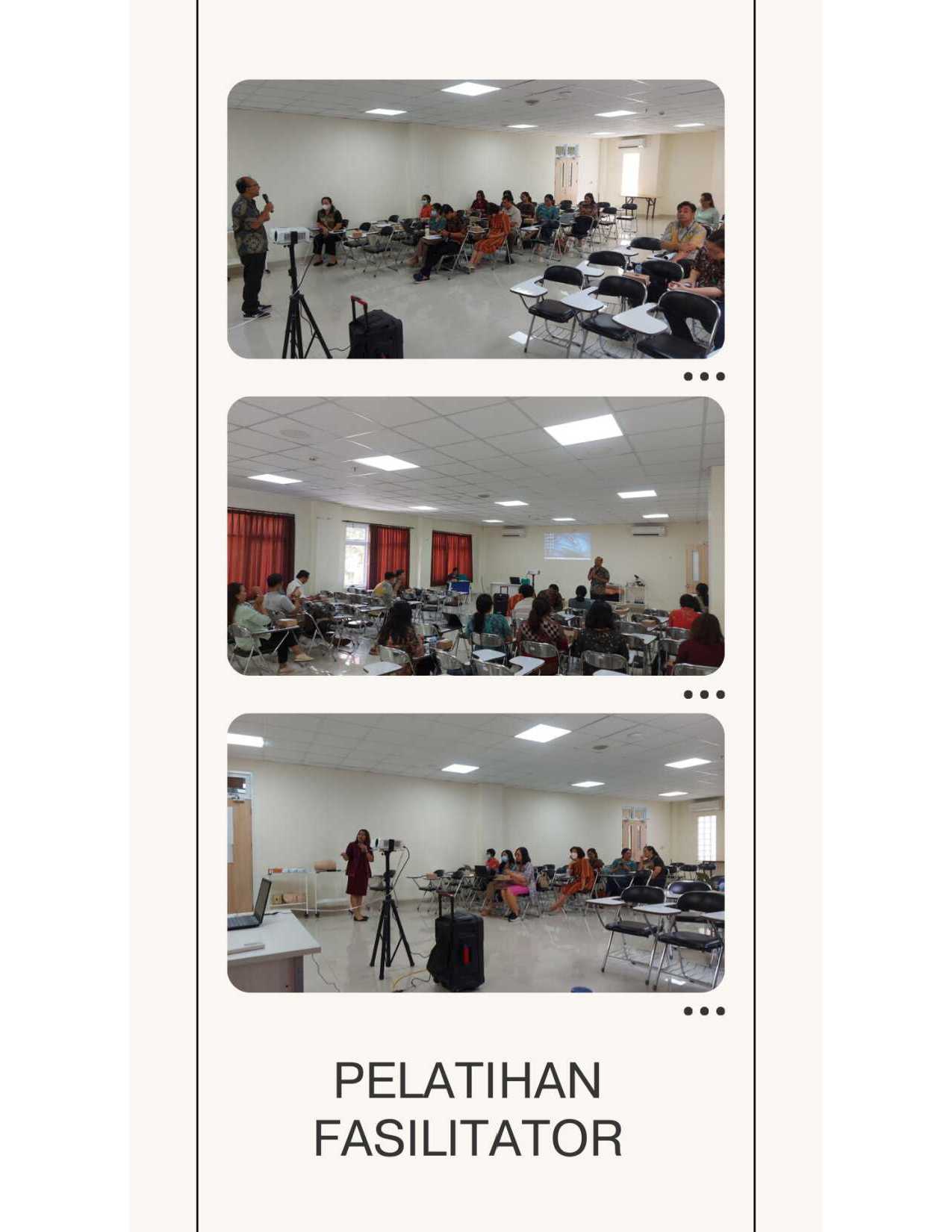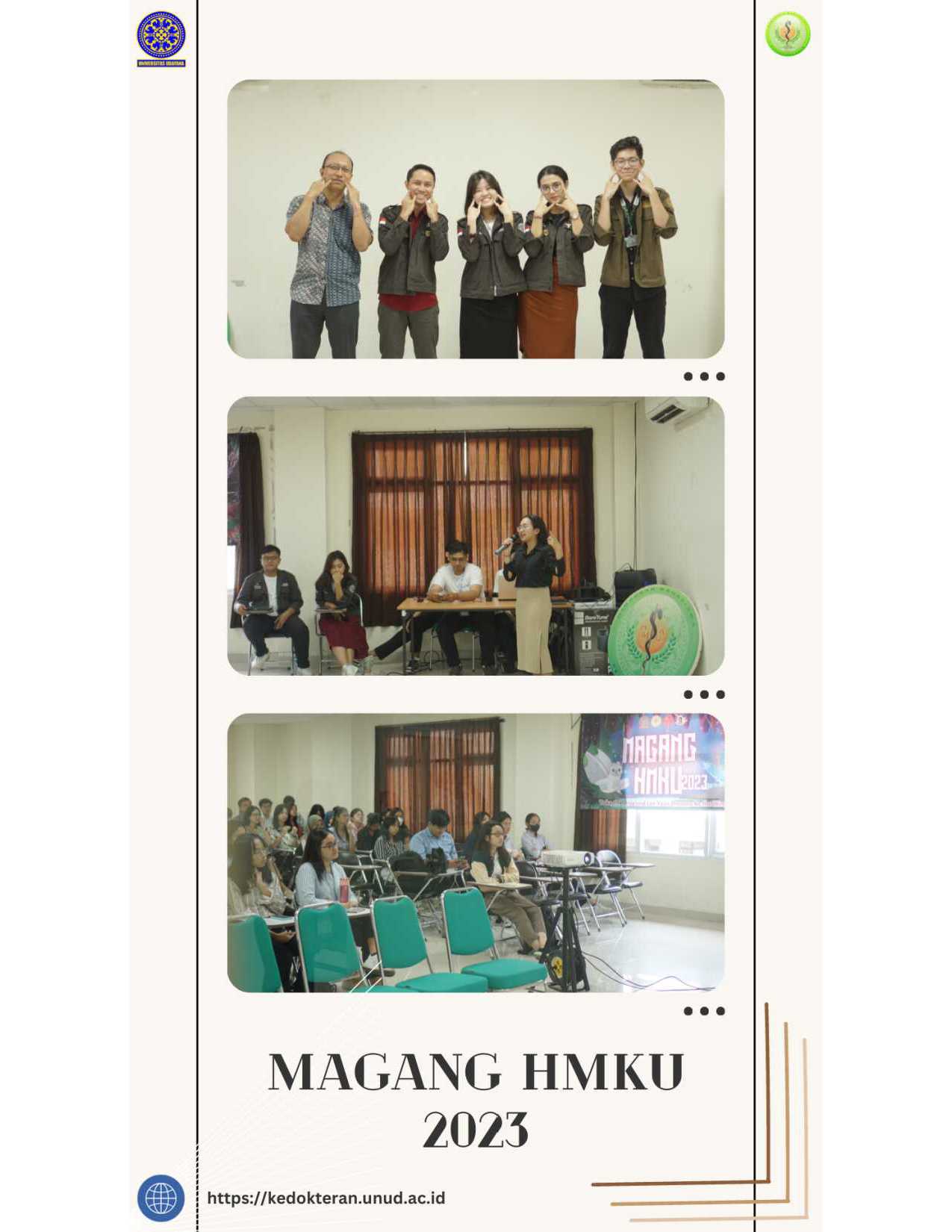Graduate Profile
Bachelor of Medicine and Medical
Doctor (BoMMD) of the Faculty of Medicine, Udayana University is an institution
of medical education that produces doctors and shapes graduate doctors based on
the university's vision, mission, the faculty's vision, and the program's
vision. The graduate profile is formulated as follows:
- Medical doctor who provides services at primary health care centers professionally.
- Medical doctor who excels in travel medicine.
- Researcher in the health sector.
- Manager in health programs.
Based on the profile above, the expected learning outcomes (ELO) are formulated in the BoMMD curriculum with specific reference to the visions of university, faculty, and BoMMD. These ELOs aim to produce excellent, self-reliant, and culture-oriented human resources. Furthermore, the formulation of these ELOs also takes into account the Ministry of Education and Culture Regulation No. 3 of 2020 concerning the National Standards for Higher Education and its appendices, as well as the Ministry of Research, Technology, and Higher Education Regulation No. 18 of 2018 concerning the National Standards for Medical Education, Udayana University Standards of 2020, Indonesian Medical Doctor Competency Standards of 2012, and Indonesian Professional Medical Education Standards of 2012.
The Expected Learning Outcomes (ELO) for graduates of the BoMMD consist of 9 ELOs, comprising 1 ELO in the domain of attitudes, 8 ELOs in the domain of knowledge, 3 ELOs in the domain of general skills, and 3 ELOs in the domain of specific skills. Of these 9 ELOs, 1 ELOs are specifically related to the flagship program of BoMMD, which is travel medicine. These Expected Learning Outcomes (ELO) are formulated in the curriculum program, academic guidelines book, and learning module. The ELO is also socialized during the preparation meetings for each semester's learning implementation and workshops for module development. Furthermore, the ELO found in the curriculum and module book is integrated with the Online Academic Services for E-learning (OASE) and the BoMMD's website, making it accessible to all stakeholders.
|
No |
EXPECTED LEARNING OUTCOMES |
|
ELO 1 |
Professionally perform medical practice following ethics, discipline, and socio-cultural principles based on Tat Twam Asi and Tri Kaya Parisudha. |
|
ELO 2 |
Effectively communicate with patients, their families, the community, and other healthcare professionals. |
|
ELO 3 |
Engage in medical practice while being aware of limitations, self-development, and knowledge enhancement to improve the quality of healthcare services |
|
ELO 4 |
Utilize information and communication technology and healthcare information in medical practice. |
|
ELO 5 |
Manage individual, family, and community health issues comprehensively, holistically, coordinatively, collaboratively, and continuously within primary healthcare services. |
|
ELO 6 |
Apply medical knowledge to manage health issues holistically and comprehensively based on the latest scientific foundation of medicine for patient safety |
|
ELO 7 |
Resolve medical issues by conducting research through the stages of the scientific method |
|
ELO 8 |
Perform clinical procedures within their authority relevant to health issues, using universal precaution principles. |
|
ELO 9 |
Perform preventive measures, diagnosis, and comprehensive and holistic management procedures for travel medicine-related health issues. |
ELO
was formulated from Udayana University's educational philosophy is embodied in
Udayana University's motto: Taki Takining
Sewaka Guna Widya, which means "someone who pursues science should
devote himself to pursuing virtue". This motto contains various important
and fundamental philosophical values of life for humans in their life,
especially in pursuing science and virtue, such as: the value of sincerity in
their efforts (Taki takining sewaka,
determination, commitment, hard work, sincerity, and consistency); the value of
performance that are oriented towards the benefit of performance results for
others, society, the nation, and mankind in general (Guna, useful performance, virtue); and the value of
self-persistence in studying and mastering science (widya, sewakaguna widya, building the quality and usefulness of the
knowledge learned). These values are in line with the various educational
values developed by various schools of educational philosophy.


FACULTY OF MEDICINE UDAYANA UNIVERSITY